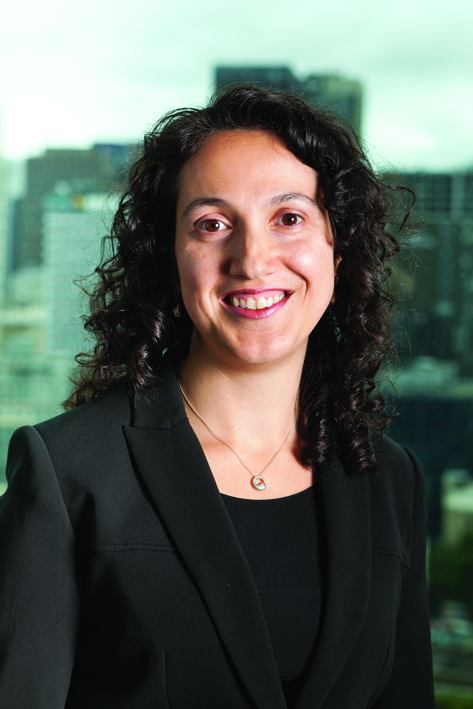Zac Hatzantonis (BCom 1994) used her economics degree to pursue a career in public policy, and is now a partner at PwC Australia. She tells us what inspired her passion for policy reform, particularly in early childhood education and care.
Zac was born to parents who immigrated to Australia in the late 60’s (Zac is actually short for Zaharoula, her grandmother’s name), who were determined that she and her brother would get great educations and go to university.
“It was always impressed on us the value of education and public service. With that background, it's probably no real surprise that I pursued an economics degree and a career in public policy,” Zac says.
“I am very much focused on policy reform that improves people’s lives, hence my interest and focus on early childhood. I am married with two kids, Christina and Reggie, who are both school age, which only serves to further fuel my interest in government policy and reform, particularly in education.”
Current state of play
Prior to PwC, Zac worked in the Department of Treasury and Finance. There, she provided complex financial and policy advice across a diverse range of portfolios, including sustainability and environment, science and innovation, and public sector reform.

After a decade in public service, she joined Pwc Australia, where she now leads their Victorian Education account, and continues to engage regularly with State and Federal Governments to help solve some of our most challenging issues.
Zac says that the initial shift from government to one of the Big Four major professional services firms was a huge one and she continues to be impressed by the deep pockets of expertise and people’s willingness to assist with complex issues.
In the dynamic fields of economics and consulting, Zac says that possessing a strong focus on what matters and having an ongoing desire to make a positive difference to society are her key motivators.
"It is important for me to work with a diverse range of people who are also keen to have a positive societal impact and are open to ongoing learning in order to solve some of society’s most ‘wicked’ problems."
We need change
In modern landscapes, challenges faced by individuals and the broader society are wide-ranging and numerous.
“Social policy explores different ways to address challenges such as those to do with demographic, economic, environmental and global changes,” Zac explains.
“At its heart, social policy is about understanding how we can design better ways to support all individuals, but also particularly consider the needs of the most vulnerable.
“Early childhood investment is a very powerful early intervention."
More importantly, many global and domestic studies show a significant return on investment for children in term of improving long-term social and economic outcomes, particularly for disadvantaged or at-risk cohorts.
Crucial next steps
What can the average person on the street do to help combat hard-hitting issues such as childhood poverty and a labour market that lacks sufficient support for women?
Zac points out that in Australia, there has long been a debate about the value of investing more in early childhood education and care. She reveals that some still see it as ‘babysitting’, which is simply wrong.
To change this mindset, Zac says we need better community and business understanding of the importance of the early years, and more willingness to invest in our youngest citizens to give them the best start in life.
“This type of advocacy from all parts of our society – not just the policy makers and academics - will hopefully help continue Australia’s steady investment into better quality early childhood programs that are accessible to all.”
In the early days of her consulting career, Zac had the opportunity to visit many early childhood services in remote and regional communities, where she observed firsthand the great work being undertaken in some of the most disadvantaged communities. And, we can learn a lot from their integrated networks.
“I was particularly impressed to see some great outcomes where early childhood services were able to connect with other critical services, such as disability and/or other welfare support, to provide meaningful engagement and holistic support for children and families.”
My hope is that, as a nation, we can continue to invest in this type of integrated support on a larger scale.